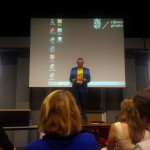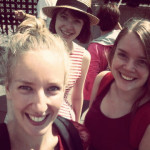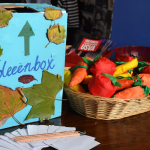News of the Week: 09 – 15 October
What’s happened in week 42? Epke Zonderland wins gold, Finno-Ugric studies end, a Middle English poem goes viral and more.
Epke Zonderland wins gold

RUG student and top athlete Epke Zonderland has once again won the world title for the horizontal bar. At the World Championship in Nanning, China, the medical student executed a nearly flawless performance that earned him 16.225 points and, along with it, a gold medal
The Frisian gymnast performed four aerial elements in his routine. His Japanese competition, Kohei Uchimura, came in second place with 15.725 points. Zonderland won gold in the 2012 Olympic games in London, and also won gold at the World Championships for gymnastics in Antwerp in October 2013.
Final diplomas for Finno-Ugric studies

Last week, seven students of Finno-Ugric – a subfamily of Uralic languages spoken in Hungary, Lapland, Finland, Estonia, and Russia – received their degrees, symbolizing the end of the programme in Groningen after nearly fifty years. Several other smaller language programmes are also ending due to cut backs in the Faculty of Arts.
With the awarding of the last diplomas, the lecturers are also unemployed. Professor Cornelius Hasselblatt was against the reorganisation plans, but couldn’t prevent them. With the end of this programme, Finno-Ugric is no longer taught anywhere in the Netherlands.
Middle English poem goes viral

Medieval English Literature and Culture Professor Sebastian Sobecki and three master’s students – Floor Kuiper, Nadine Kuipers and Hiske Feenstra – recorded a reading of the Middle English poem, Speke Parrot by John Skelton, that has gone viral: with more than 135,000 views, it’s the third most popular post ever in the History subreddit.
According to Sobecki, English pronunciation in the time period is based on phonetically-spelled written sources, and rhyme scheme and dialect also give clues. The 1521 poem is an indictment of Cardinal Wolsey and humanism, mocking humanists for speaking many languages and parroting each other.
Albertus member caught stealing

A female member of the Albertus fraternity stole thousands of euros from her year club. The circumstances of the theft are not yet clear, nor how much money was stolen – sources suggest it was around 4,000 euros.
Albertus vice-president Diana den Heijer says, ‘When we heard about this, we looked into it immediately. We are sure that this does not involve fraternity money. It’s terrible, but the year club has to deal with this internally.’ Two weeks ago, a male member of Dizkartes was found to be stealing money from his society members, too.
Rosters troubling FEB

Teachers and students are struggling with scheduling in the Faculty of Economics and Business. Students are dissatisfied with overcrowded lecture halls and some have back-to-back classes for six hours at locations so far apart that it’s impossible to bike in the allotted time. Lecturers are also frustrated by double booked classrooms and inefficient scheduling.
This year, every RUG faculty has exams at the same time, including on Saturday mornings, along with the Hanzehogeschool. External locations have been used in the past, but few are available.
Green Office

During the Day of Sustainability, the RUG opened the Green Office, a student-run organisation that focuses on sustainability within the University. The RUG follows several other Dutch universities by opening a facility intended as a contact point for discussions about sustainability among students and employees.
Projects like Frankville, which is a community garden at Zernike, annually measuring the amount of waste produced and energy used by the University, and using ink-saving fonts will be actively supported and promoted by the Green Office. Staff there believe there is still much to be accomplished, although student life is pretty sustainable.




